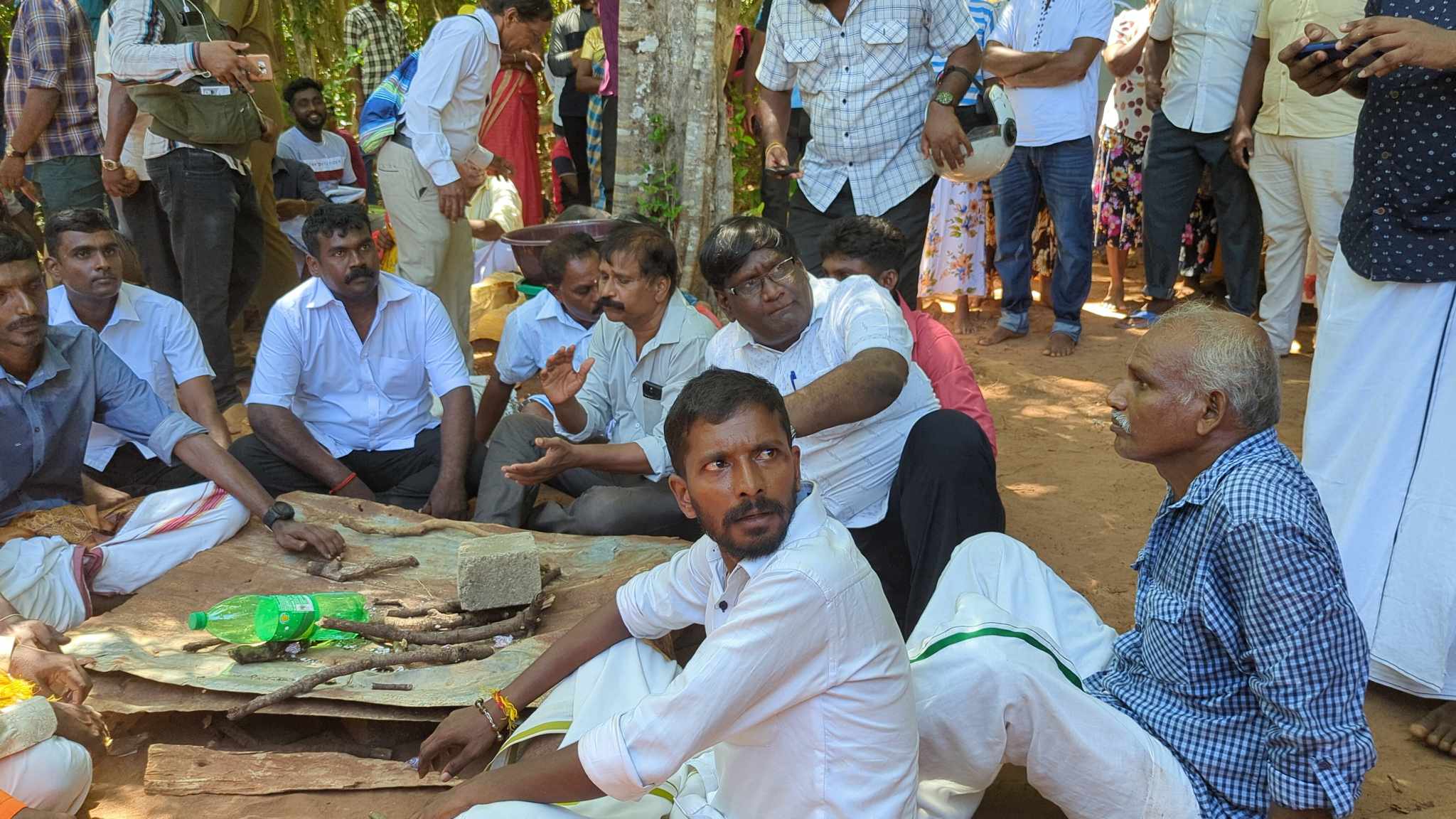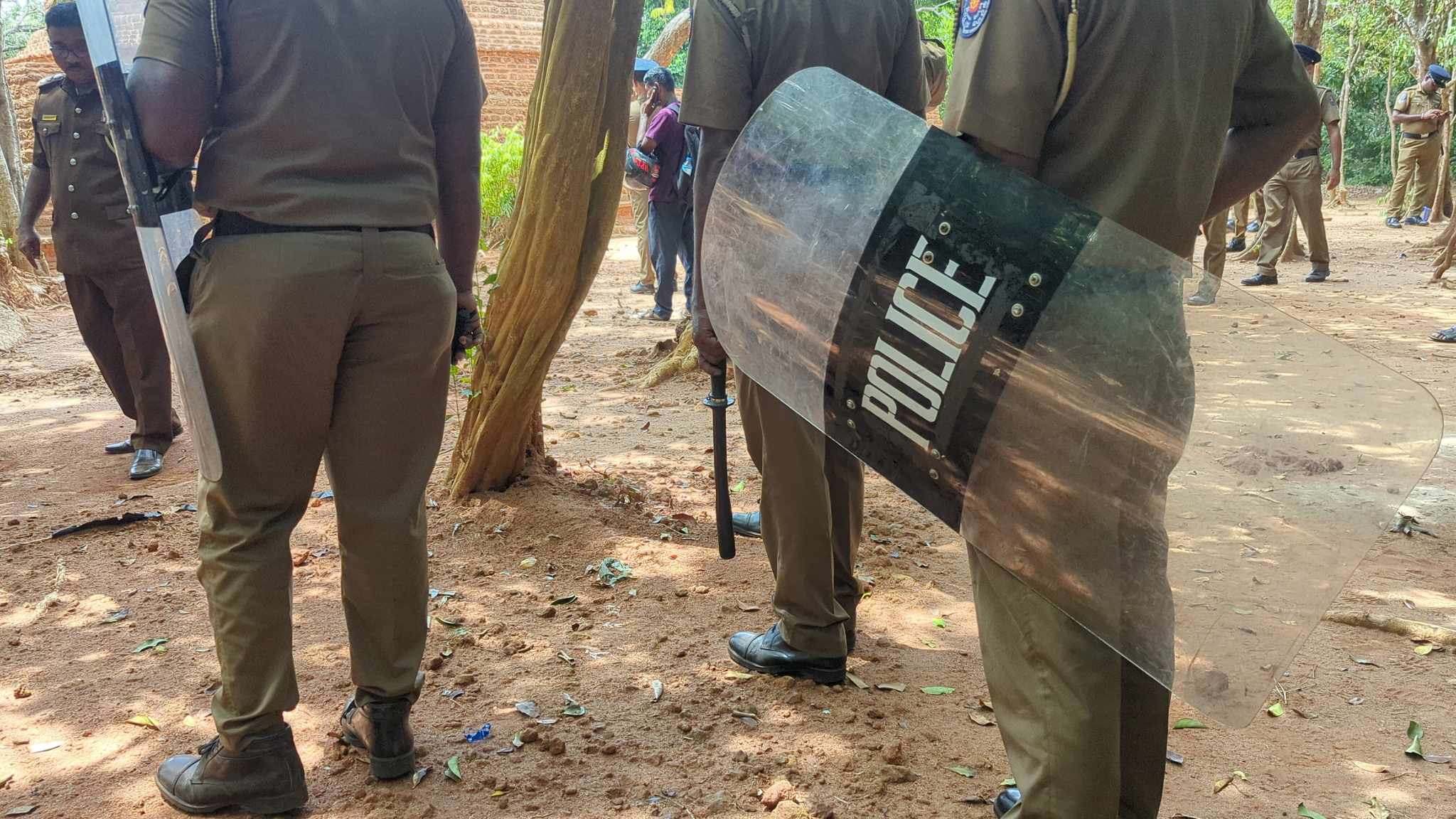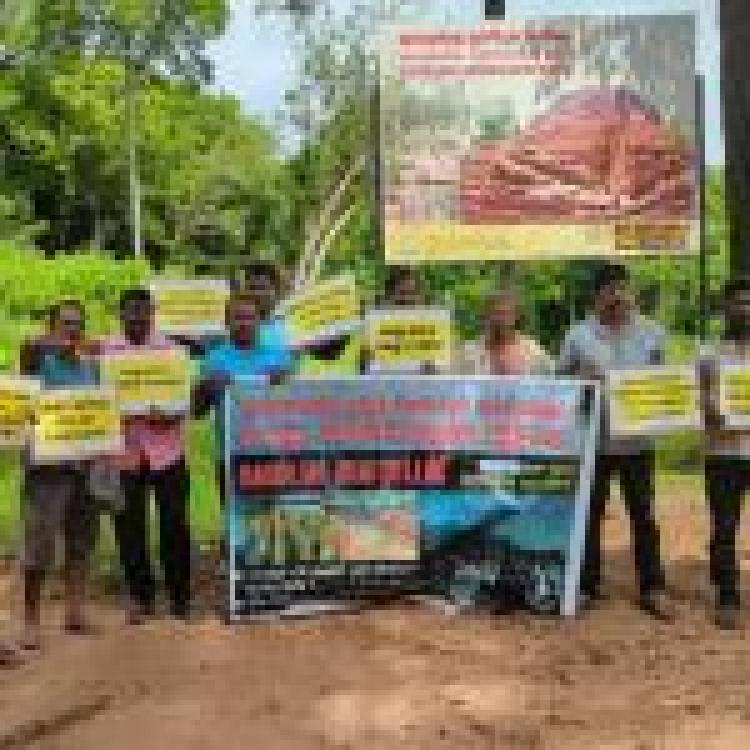.jpeg)
A Pongal event planned at the Kurunthurmalai site in Mullaitivu turned into a tense and chaotic situation as Tamil devotees faced harsh opposition from a crowd of Sinhala Buddhist monks, with the aid of officials of the Sri Lankan government and Sri Lankan Police.
.jpeg)
The Pongal celebration, whilst approved by Mullaitivu's Magistrate Court on 13th July, faced opposition from Sinhala extremists demanding that Tamil devotees stop their worship and not erect idols to their gods.
Upon the instructions of a Buddhist monk, Sinhala protesters came from the South to Mullaitivu via two buses and arrived around 8 o'clock in the morning to demand an end to the Tamil festivities. They maintained that they would not be allowed to perform the pongal offering to the Athi Sivan Aiyanar deity.
.jpeg)
Officials from the Department of Archeology further aided the demonstrators by claiming that the site was of archeological significance and that lighting a fire at the site was prohibited. This led to Kilinochchi Mullaithivu District Deputy Inspector General of Police Samoothira Jeeva and his assistant forcefully stamping out a fire that Tamil worshipers had lit.

Tamil devotees maintain that the official from the Department of Archeology had permitted them to light a fire to cook pongal so long as precautions were taken to prevent any damage or contamination to the site.
As Sinhala protesters increasingly confronted Tamil worshipers, yelling at them to end their worship, Sri Lanka's police ordered both parties to leave the site.
.jpeg)
Sri Lanka's police, the Special Task Force, and other military personnel, equipped with riot gear, were deployed to the scene and attempted to remove the worshippers by force. Women and men were dragged aside and Tamil MP S Gajendran was reported to have been forcefully evicted.

In a display of defiance, worshippers continued their observance by singing Thevarams, traditional Tamil hymns, to honor the Tamil heritage of the site.
.jpeg)
A Tamil religious leader, speaking to the media, expressed his concerns, stating;
"This once again emphasizes that there can be no justice for Eelam Tamil people, the Saiva religion, or Hindus. The state machinery, including the police, military, and the Department of Archaeology, acted against peaceful religious observance. This is part of the ongoing oppression experienced by the Tamil people. We lack trust in the internal mechanisms for justice and demand international oversight to ensure transparency in any investigations conducted by the state."
.jpeg)

